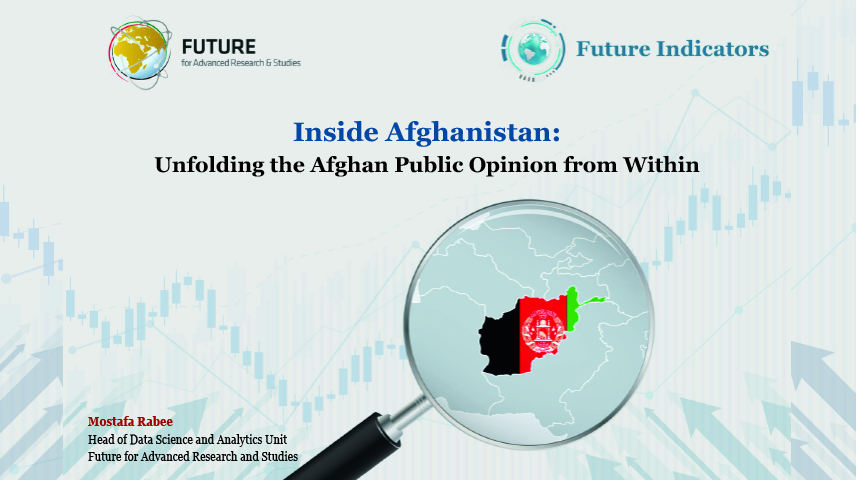In August 2021, the Taliban managed to enter the Afghan capital, Kabul, and quickly seized control of almost all of the country, which led to the fall of the Afghan government. This still raises many questions about the reasons behind such abrupt developments, and calls for the necessity of understanding how the Afghan society thinks.
Accordingly, this report attempts to identify the behavior of the Afghan society towards some internal conditions, such as the extent of Afghans' satisfaction with the economic conditions, the services provided, and the degree of corruption. Additionally, this report traces the extent of Afghans' support for the Taliban movement through indirect indicators, as well as assessing the size of the generational, ethnic and geographic variances in terms of support for the Taliban. The report also explores the Afghans' attitudes towards the ability of security institutions to maintain stability without foreign financial assistance. Finally, the report assesses the extent of Afghans' security concerns and how such concerns altered over time.
The report is based mainly on the statistical analysis of the data of a survey carried out in February of 2021 by the Asia Foundation, which was conducted on a representative sample of over 4000 Afghan citizens.
Despite the significance of opinion polls in understanding people’s behavior, one should take into consideration the methodological biases that may impact the accuracy of the results. Additionally, some additional biases may be exhibited by respondents based on specific circumstances, the security situation, and even the geographical location, as well as the educational and ethnical backgrounds and other factors perceived in a complex environment like Afghanistan.


